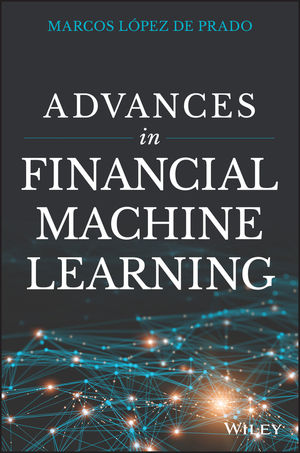Newsletter of the Bachelier Finance Society
Volume 11, Number 4, October 2019
JOB POSTINGS
The aim of these postings is to create a forum for the dissemination of information on academic and industrial positions related to mathematical finance, across different disciplines and different geographical regions. Please submit any job advertisements you are aware of to jobads@bachelierfinance.org, preferably in plain text and sending the link to the website containing all the information. Updates and new items appear continuously at: bachelierfinance.org/forum/jobs
Tenure-Track Position in Financial Mathematics
NC State University
Deadline: October 15, 2019
PostDoc position
University of Edinburgh
Deadline: October 31, 2019
Chapman Fellowship
Imperial College London
Deadline: November 1, 2019
Faculty position
University of California, UCLA
Deadline: November 15, 2019
Assistant Professor of Finance
Questrom School of Business, Boston University
Deadline: December 1, 2019
Announcements
Call for Submissions – Nicola Bruti Liberati Prize
https://www.bachelierfinance.org/nicola-bruti-liberati-prize
Theses defended in 2018 and 2019 must be submitted no later than January 31, 2020.
BOOKS & JOURNALS
The Society maintains a list of books, book reviews and journals at: https://www.bachelierfinance.org/publications. Members that would like to have their books added to the website, should please let us know.
Recently published books
Pauline Barrieu (Ed.)
Risk and Stochastics: Ragnar Norberg
World Scientific (2019), ISBN 978-1-78634-194-5
Ernst Eberlein, Jan Kallsen
Mathematical Finance
Springer (2019), ISBN 978-3-030-26105-4
Yvonne Kreis, Dietmar Leisen, Jorge Ponce
Systemic Risk: History, Measurement and Regulation
World Scientific (2019), ISBN 978-981-120-105-9
Maria C. Mariani, Ionut Florescu
Quantitative Finance
Wiley (2019), ISBN 978-1-118-62995-6
Glenn Shafer, Vladimir Vovk
Game-Theoretic Foundations for Probability and Finance
Wiley (2019), ISBN 978-1-118-54802-8
BOOK REVIEW
Advances in Financial Machine Learning
by Marcos Lopez de Prado

reviewed by Peter Schwendner, Zurich University of Applied Sciences
Marcos Lopez de Prado defines his book as “a research manual for teams, not for individuals”. Hopefully, not only quant specialists of investment and trading companies will read the book, but also their senior managers will adapt its main findings. Already in the first chapter – the “preamble” – de Prado lays the cornerstones of a successful structure of a quant research setup and outlines the most common management mistakes of implementing machine learning across the investment process.
In his line of thoughts, the most notorious management mistake is to treat quant specialists like discretionary managers. Unlike discretionary managers, who are usually kept in competing silos in order not to dilute their specific edge, quants should specialise at a certain task of the whole value chain and validate and support each other to enable a professional production line. The reason for this different approach is the increasing complexity of the various steps due to the trend to include more complex data. In a market of decreasing alpha, this is a competitive advantage.
The suggested “production chain” of quantitative strategies consists of data curators, feature analysts, strategists, backtesting specialists, a deployment team and a separate portfolio oversight responsibility. Notably, colleagues from sales and marketing are not part of this production chain, although they will be responsible for raising assets for the client product.
De Prado has a strong view of the use of backtests in the financial industry. He points out that each tested strategy variation is a hypothesis, and that a not strictly planned loop of sequential testing and “improving” a strategy leads to a significant overfitting bias that will likely render the result as worthless. The more careful and diligent the strategy development process is, the more realistic (read: lower) the shown expected value of its performance will be. Therefore, under severe time and performance pressure, even a very highly qualified, but isolated PhD will likely fail to develop a successful quant-driven investment process. This flawed R&D process concerns colleagues working in the financial industry as well as in academia.
Machine learning is not simply a more casual alternative to econometrics without proper hypotheses testing but can help to professionalise the production chain. The author presents concrete tools and algorithms that make it possible to improve the structure and labelling of data, to find meaningful features, to generate synthetic data for additional out-of-sample testing, to overcome unstable covariance matrices, and to quantify the damned overfitting bias. To do so, de Prado relies not only on own well-known scientific contributions like hierarchical risk parity (HRP) and the “probability of backtest overfitting”, but refers to a full selection of the most important literature of this field at the end of each chapter and even points to specific helpful Python libraries.
The book offers a rigorous mathematical presentation and compact code snippets that profit from the rigorous mathematical education and in-depth quantitative finance experience of the reader. In other words: this is not an introductory book1. For readers with the necessary background, it delivers on the promise to “cross the proverbial divide that separates academia and the industry” written on the flap. We are glad to have already spotted several third-party Github repositories and blogs that explore, explain and apply the rich material of this book. If used as intended – as a workbook for teams, and then communicated to senior management – it can have a substantial impact on the seriousness of investment product development, and on investors’ confidence in the resulting products.
UPCOMING CONFERENCES
This list contains conferences related to mathematical finance that take place in the next three months. A full list is available at https://www.bachelierfinance.org/conferences. Please let us know of conferences we are not aware of and include a URL for the event.
Autumn School in Financial Mathematics 2019
October 7–8, 2019
Verona, Italy
4th Eastern Conference on Mathematical Finance
October 25–27, 2019
Boston MA, USA
The Quant Conference 2019
November 1, 2019
London, UK
Swissquote Conference 2019 on Artificial Intelligence in Finance
November 8, 2019
Lausanne, Switzerland
XV CLAPEM 2019
December 2–6, 2019
Merida-Yucatán, México
QMF 2019
December 17–20, 2019
Sydney, Australia


Leave A Comment
You must be logged in to post a comment.